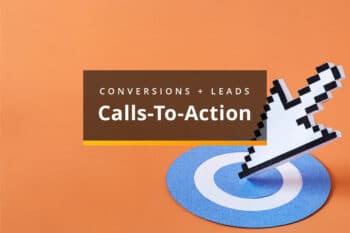In a video and comments regarding local search rankings and SEO, Jeremy Sussman of Google Maps described Google’s local algorithm as having three main parts: location, relevance, and prominence. The information contained within your Google+ Local Business listings data is a major piece of how Google determines these three factors and ultimately who shows up first in the local listings.
Google+ is one of the best ways to improve your local search rankings so we’ll focus on some specific tips and recommendations for this first. But it’s not the only site or tactic that you should be concerned about. We’ll discuss my additional recommendations in part 2 (coming 8/31/12) that go beyond Google+ and it’s mapping products.
1) Standardize
Before you even start thinking about doing any of the recommendations in this post, stop, and standardize your information. Distributing your information going forward is going to be important and it needs to be consistent. Decide exactly how your business name will appear, what your address is, what phone number you’ll use and all the other information that you’ll need to complete an online profile. This is referred to as your NAP. (Name, Address and Phone)
This includes standardizing the keywords that you’ll use going forward. Are you an accountant, accounting firm, accounting and business advisor? Are you a lawyer, law firm or attorney? Is your your business name technically Robert Smith Accountant or Robert B. Smith’s Accounting, LLC? It makes a big difference in how Google determines the prominence of your business online if the name is not consistent across the board.
2) Add your NAP to your website
This is a simple one but important. Make sure that your name, address and phone information is on your website and that it matches your NAP used on other sites around the web. Bonus tip: Use a local phone number whenever possible and not an 800 number.
As you can see from the sceenshot below (Search for bakery Canton Ohio), your NAP is displayed prominently on Google local results. Also notice that Google will link directly to reviews, a businesses Google+ page, subsections of their website or their website homepage directly. Bonus: Also notice that Google is returning Facebook pages as search results. An important citation for your business and one that we’ll discuss later!
3) Complete your profile
When you distribute your data to Google+ and other sites, make sure that your information is complete. Again, this information should be compiled and approved before you even start so everything is consistent going forward. Collect things like business hours, payment options, complete business description, photos and videos and you’ll likely stand out above your competition.
4) Choose your categories carefully
The categories you choose are important when submitting your site online — maybe even more important than the keywords that you use in your profile so take the time to choose wisely. Make sure to use all the available options too. If you can choose up to 5 categories then make sure you do it if the categories are relevant. It will make a big difference.
5) Keywords, keywords, keywords
Keywords are important as you know. As I said in the standardization section, spend some time researching your keywords and determine which words and phrases are the most relevant and popular to use. (cake bakery or bakery shop?) Once you’ve identified the right keywords use them consistently and anywhere that you can within your profile. Consider using keywords in your business name as well but don’t change your business name just to include a keyword.
For example, if I owned an accounting company called Auman & Associates and my business was registered with the state, my local chamber of commerce and shown on my website as Auman & Associates, I wouldn’t want to suddenly distribute it across the web as Auman & Associates Accounting just to get the keyword in there. Consistency is key.
6) Encourage Google +1 everywhere
Integrating the Google+ 1 button into your site and marketing is a no-brainer. (Connect with me on Google+!) The button essentially allows people to connect with you on their Google+ page. Clicking the button is similar to saying that you “like” someone on Facebook or that you’re “Following” someone on Twitter.
Why is it important? Because I believe that Google uses this data to determine search results. You can only imagine how valuable this data is to Google. Lets say that they’re comparing just you and your main competitor. If your company has a highly optimized Google+ page with all kinds of information and activity and you also have several hundred +1s from your followers. Your competition has nothing. Who do you think Google is going to consider more valuable and reputable?
7) Encourage reviews on Google+
Here’s another one that’s out of your control but you should make it easy for customers and clients to review your business on Google+. Yes, it’s scary but if you run a reputable business then it shouldn’t be a problem.
Reviews also tell Google how reputable and valuable you are. Using the previous example, Google is going to return your business higher in the search results if you have better ratings than your competition. This is an important element of your “prominence” online.
How do you do this? You need to ask and then make it easy. When someone orders from your online store, give them a link to review you on Google. If someone places an order at your brick and mortar store, give them a nice little card with their receipt with a direct link to reviews on your Google+ page. Send them a follow up email after the sale. Ask your current followers on Facebook, Twitter and of course Google+ to review you. Ask your friends and family to review you. If you run ads, occasionally put a small line at the bottom about following and reviewing your on Google+. Get creative!
8) Have ongoing Google+ Activity
Yes, this is just one more thing that a small business needs to do but you should stay active on Google+. How active you become is up to you but you should have something to say about your business on a regular basis, right?
Tell your followers about special offers and sales. Link them over to a new blog post where you give them some advice. Tell them about new products and what’s on clearance. Maybe even tell them something unrelaed to your business so you can be endeared to your customers. Maybe you just got a new puppy and he came to visit the store. Share pictures! Maybe there’s a big street festival in your town, let people know about it and that you’re going. Maybe you just want to say “hi” and “thanks” for following. The options are endless and it doesn’t take a lot of effort.
Why is this important? Because it shows Google that you’re engaged with your followers and that you’re a real (and sad to say) company that’s still in business. It’s just another signal that Google uses to determine who rises to the top and who falls.
9) Encourage repeat visits and interaction
Yes, this is another hard one but Google wouldn’t have it any other way. I believe that Google knows how many people visit your Google+ page and click on it in the search results. It shows Google that you’re appealing, relevant and valuable to people — especially if they end up interacting with you in the form of a follow, comment, visit to your website or review. I even believe that if you have Google analytics installed on your website they’re tracking a user from the point they made a search all the way through to what they did on your site and ultimately if they made a purchase and how they left. This is great data and I believe they use it.
So the takeway is that you should encourage people to come to your Google+ page often. Stay engaged, remind them about it, link to it and talk about it. Ultimately if nobody goes to your page it could be held against you.
10) Citation quality and consistency
Leading into part 2 of this post I wanted to talk about citations and why they’re important. A citation is essentially your NAP on another website, directory, search engine, or social site on the web. If your information comes with a link to your website and complete and detailed information about your business, so much the better.
Google+1 Local Business pages are one of the top 10 citations that you should have on the internet. But there are essentially hundreds of sites on the web that you should be listed on. (See a basic graphic about the citation ecosystem here.) Everything from Facebook and Yellow Pages to Mobile Search data distributors. They should all have you listed consistently. And you know what? Google knows about it.
Google knows that your citations are consistent and who has the most. Google knows if your name is consistent and if your phone number is the same. It certainly knows how many sites link back to your website and it all figures into why you show up higher in the local search results on their search engine.
At the most basic level, citations like Google+ Local and other sites are just another way for people to find you. YellowPages.com might be returned in the search results for a specific category search and they’re just one click a way from them arriving at your site.
Part 2 (Coming 8/29/12) of this post will discuss citations in detail and how you can reap the benefits of this important tactic.
Most Popular Articles

Seeing Favicons in Your Google Search Results? Here’s Why…
Have you noticed anything different in your Google Search results lately? Google added tiny favicon icons to its organic search results in January. It was…

Business Growth and Digital Marketing News & Tips 4-14-24
Did you know? It’s five to twenty-five times more expensive to acquire a new customer than to retain an existing one. Increasing customer retention by…

Business Growth and Digital Marketing News & Tips 3-28-24
With the desire for precise measurement tools to determine ROI, there has been a rise in attention metrics. These metrics, which often utilize eye-tracking data,…








